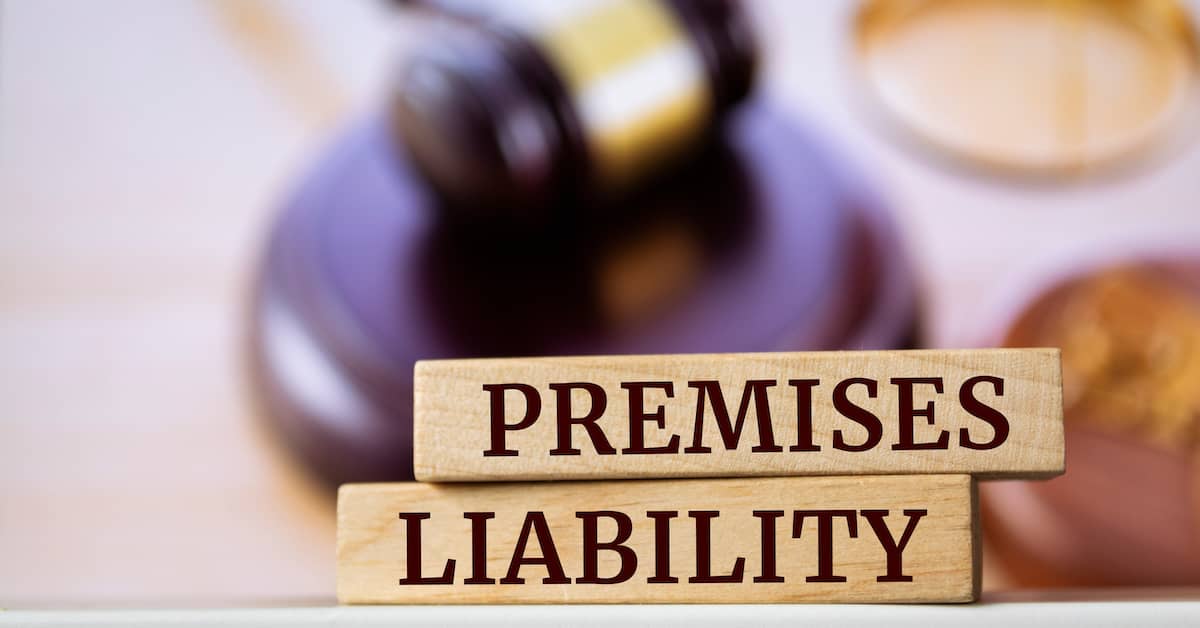
What Is the Auto Accident Statute of Limitations in New Jersey?
In the aftermath of an auto collision, it’s important to understand the New Jersey auto accident statute of limitations. This legal deadline is crucial for anyone who has suffered due to an automobile crash in the state and wants to seek compensation for their losses.
When dealing with injuries and bills that are starting to pile up, knowing the timeframe within which you must take legal action is essential. Awareness of the statute of limitations for car accidents in New Jersey and what goes into building a successful case can help you understand your rights and the importance of timely legal action.
Maggiano, DiGirolamo & Lizzi is here to help you pursue just compensation in your car accident claim. Prompt action helps to ensure you seek justice within the New Jersey auto accident statute of limitations. Call (201) 585-9111 today to schedule a FREE case review with our car accident attorneys.
What Is a Statute of Limitations?
The statute of limitations is a law that sets the maximum time after an event within which legal proceedings may be initiated. In the context of auto accidents, it dictates the time frame within which you must initiate legal proceedings to seek compensation for injuries or damages. The time limit is significant because you’re generally barred from seeking compensation through the court system once it expires.
Understanding the specifics of the statute of limitations can sometimes be complex, and missing this deadline can bar you from seeking justice. Therefore, consulting a New Jersey auto accident lawyer for guidance and to ensure your claim is filed within this critical timeframe is highly recommended.
Why Does It Matter?
The statute of limitations is more than just a legal formality—it is a crucial aspect of the justice system, especially in car accident cases. Adhering to this deadline matters for several reasons:
Preservation of Evidence
Over time, evidence can deteriorate or get lost, and witnesses’ memories may fade. The statute of limitations ensures that cases are brought forward while the information is still reliable.
Fairness to Defendants
It protects defendants from the indefinite threat of a lawsuit. Over time, defending against a claim can become increasingly challenging due to the loss of evidence or witnesses.
Prompt Resolution
It encourages victims to act promptly, facilitating a quicker resolution to their legal matters. This is particularly significant in auto accident cases where financial burdens from medical bills or lost wages can escalate.
Missing this deadline usually results in losing the legal right to seek compensation for your injuries and damages. Thus, understanding and acting within the statute of limitations is essential. If you’re unsure how these laws apply to your situation, consulting with a car accident lawyer can provide clarity and ensure that your rights are protected.
What Is the Statute of Limitations for a New Jersey Auto Accident?
The New Jersey auto accident statute of limitations for filing a lawsuit is 2 years from the date of the accident. This law applies to both personal injury and property damage claims in car, truck, and motorcycle accidents. It means that if you’ve been involved in a car accident, whether as a driver, passenger, pedestrian, or property owner, you have 2 years from the accident date to initiate legal action against those responsible.
This 2-year window is a critical deadline. Failing to file within this period typically results in losing the opportunity to seek compensation through the court system. It’s important to note that this timeframe applies to filing the lawsuit, not completing all your medical treatments or negotiations with insurance companies.
Exceptions to the Rule
There are exceptions to the 2-year New Jersey auto accident statute of limitations. For instance:
- Minor Plaintiffs: If the injured party is a minor, the statute of limitations doesn’t begin until they turn 18. However, parents or guardians can file a claim on behalf of the minor before they reach adulthood.
- Claims Against Government Entities: If you need to file a claim against a government entity or employee in New Jersey, you must file a notice of claim within 90 days of the accident. This is a prerequisite before you can file a lawsuit.
- Discovery Rule: Sometimes, the injury or damage caused by a car accident isn’t immediately apparent. New Jersey’s discovery rule may apply in these cases, and the statute of limitations may start from the date you discovered or reasonably should have discovered the injury.
- Defendant’s Absence: If the defendant leaves New Jersey to avoid being served with a lawsuit, the time they spend out of state is not included in the calculation of the statute of limitations.
Given these complexities and the strict nature of the statute of limitations, it’s advisable to consult a car accident lawyer as soon as possible after an accident. A knowledgeable attorney can help ensure that all legal actions related to your claim are timely and effectively managed.
Read More: What Can I Do If I Think I Missed the Statute of Limitations?
Is New Jersey a No-Fault Car Accident State?
Yes, New Jersey operates under a no-fault insurance system for car accidents. This means that after an accident, regardless of who is at fault, your own auto insurance policy typically covers your medical expenses and lost wages up to the limit of your personal injury protection (PIP) coverage.
However, the no-fault system doesn’t eliminate the relevance of fault entirely, especially when it comes to pursuing additional compensation. In cases where injuries are severe, surpassing the serious injury threshold, you may step outside the no-fault system to file a claim or lawsuit against the at-fault driver.
Bodily injuries that qualify under this law include:
- Permanent injury
- Displaced fractures
- Dismemberment
- Significant disfigurement
- Significant scarring
- Loss of a fetus
- Death
Should your injuries meet this threshold, the statute of limitations becomes crucial. You still have only 2 years from the date of the accident to file a lawsuit for any injury claim that extends beyond the scope of your PIP coverage.
While the auto accident statute of limitations pertains to filing a lawsuit, remember that insurance claims also have their deadlines. It’s prudent to notify your insurance company about an accident almost immediately after it occurs. Insurance policies often have a “prompt notice” requirement, and failure to report an accident promptly can result in the denial of coverage.
Read More: What Happens If You Don’t Report a Car Accident to Your Insurance?
How Long Does It Take to Settle a Car Accident Case?
Clients often ask how long it will take to settle a New Jersey auto accident case. Unfortunately, that depends on the specifics of your claim. Once your attorney has evaluated the details of your case, they may be able to give you a better idea of the timeline. However, it is impossible to estimate with certainty.
While some cases resolve within months, others can take years to settle. This could be due to a number of factors, including:
- The complexity of the claim
- Disputes over fault
- The severity of the injuries
- The insurance company’s willingness to negotiate
- Debate over the cause of the accident
- Whether it is necessary to go to court
Keep in mind that the time spent working with insurance companies is still deducted from the 2-year statute of limitations. It is important to act as quickly as is reasonable to pursue compensation and build a case. Your lawyer can help you decide if a settlement seems appropriate or if it makes more sense to file a lawsuit.
How Do You Build a Strong Auto Accident Claim?
Building a solid car accident claim requires time, effort, legal knowledge, and attention to detail. It can seem overwhelming, especially when you are dealing with severe injuries or the loss of someone you love.
We’ve put together some critical steps to take when assembling your claim. However, remember that a good car accident attorney will be a valuable ally and asset as you fight for just compensation.
The following course of action can help to strengthen your claim:
- Seek Immediate Medical Attention: Your health is what is important here. Serious injuries require immediate care. Seeking treatment also provides documentation to support your claim.
- Report the Accident: File a police report and alert your insurance company as soon as possible. These records serve as evidence that can help prove fault and support your claim.
- Gather Evidence: If possible, photograph and take video at the scene, including vehicle damage, skid marks, road conditions, injuries, etc. This visual proof could strengthen your claim considerably.
- Identify Witnesses: Collect names, contact information, and witness accounts from anyone who saw the accident. These statements could help establish the sequence of events.
- Keep Detailed Records: Save all your medical bills, receipts for treatment and prescriptions, proof of lost wages, and more. Any document related to your accident or injuries could be useful to your case. These records also demonstrate the financial impact of the accident on your life.
- Hire an Expert, If Needed: Accident reconstructionists and/or medical professionals may be able to provide valuable expert testimony to explain the cause of the accident and the extent of your injuries.
- Consult a Lawyer: A skilled attorney can guide you through the legal process, pointing out important steps along the way. In addition, they can handle negotiations with insurance companies, ensure deadlines are met, and more while you focus on getting healthy.
Each of these steps takes time. That is another reason why acting as swiftly as possible after an accident is so beneficial. Missing deadlines means you may not get the support you need to heal and have a hopeful future. Don’t let delays jeopardize your case.
Do I Need To Hire an Attorney After a New Jersey Car Accident?
Hiring an attorney after a New Jersey auto accident isn’t mandatory—but it will significantly improve your chances of securing the compensation you need to move on after a terrible accident. A lawyer is your partner as you work your way through the claims process. They can give insight and guidance while making sure important deadlines are met.
A courageous and compassionate attorney will fight for your rights, protect your interests, and ensure that nothing falls through the cracks. When you are struggling to heal and worried about the future, they can do the heavy lifting. Gathering evidence, negotiating with insurance companies, and filing legal documents on time—that’s our job, and we do it well.
At Maggiano, DiGirolamo & Lizzi, we are constantly inspired by our clients’ strength and resilience. We want to fight for you and for justice in your case.
Consult the Auto Accident Attorneys at Maggiano, DiGirolamo & Lizzi
Considering the New Jersey auto accident statute of limitations, consulting with an attorney as soon as possible after a car accident is advisable. Early consultation with a lawyer can ensure that your claim is preserved. It also allows for the timely gathering and preservation of evidence, which is vital for building a robust case.
A car accident claim in New Jersey can be overwhelming, especially when dealing with injuries, repairs, and insurance companies. This is where an experienced New Jersey car accident lawyer can provide invaluable assistance. A knowledgeable attorney will help you understand all applicable deadlines and offer comprehensive guidance on the steps you need to take to preserve your rights and maximize your potential compensation.
If you or a loved one has been involved in a car accident, take action promptly to safeguard your legal rights. At Maggiano, DiGirolamo & Lizzi, our clients inspire us to seek justice. With strength and courage, we will pursue the compensation you deserve. Contact us today to schedule a FREE case review. We represent clients in Fort Lee and throughout New Jersey and New York.


















